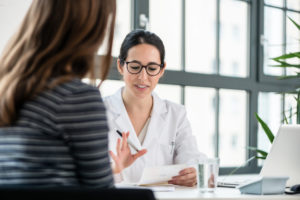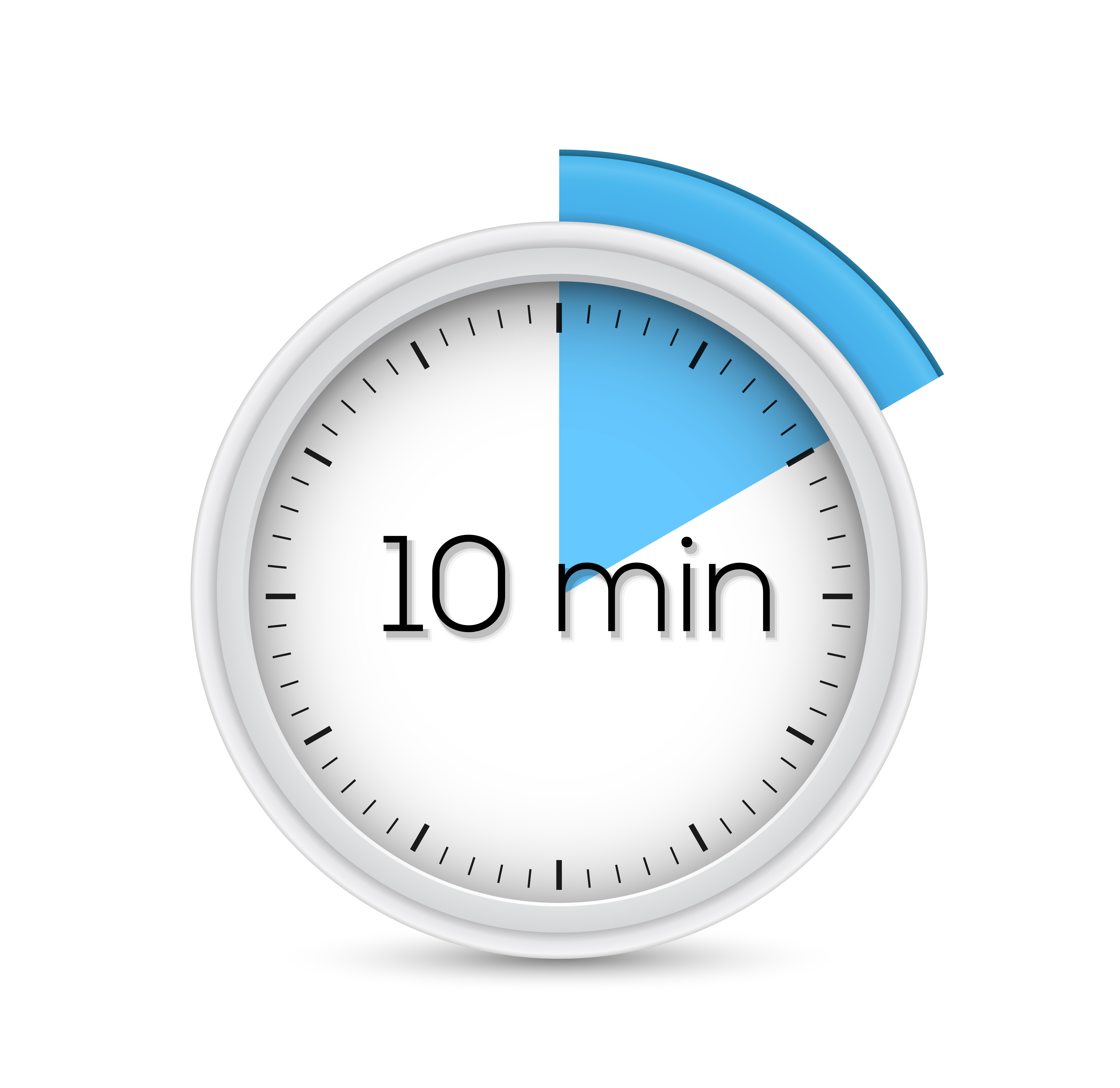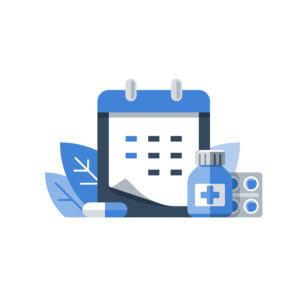 How to get the most from your health appointment
How to get the most from your health appointment
It can be hard to get an appointment with your GP these days, and when you do, you only get 10 minutes of their time – this may not be long enough to get across everything you want to say.
Make sure you get the most out of your valuable appointment with our top tips to help you prepare.
You can use them when you’re seeing your GP and other health care professionals, or going to a hospital appointment.
Top Tips for Medical Appointments
- Write a list of your symptoms and what you may want done about them
 Put the health issue that concerns you most at the top of the list, and talk about that first
Put the health issue that concerns you most at the top of the list, and talk about that first- Book a double appointment (if possible) to give you more time
- Ask for the first or last appointment of the session
- Try and ask for the same GP or doctor every time
- Take a list of any medicines and pills you’re on – or take them to the appointment
- Wear light, loose fitting clothes
- Tell your practice more about you
- Let your practice know if you have a learning disability
- Take someone with you for moral support
- Give your practice advance warning of any particular needs or issues – for now and for future appointments
- Use telephone appointments for follow up to make things easier
- Make use of your practice’s online services
- Contact the Trust for help and advice.
- Use the online resources and Health Factsheets from the Thalidomide Trust
- Tell us your concerns, ask us questions, share your experiences
Top Tips Explained...
1.Write a list of your symptoms and what you may want done about them
Before you go for any medical appointment, put together a list of your main issues or problems and think about what you want to get from the consultation; are you looking for reassurance, treatment or referral, or simply some acknowledgement of your symptoms or condition? Don’t worry if you don’t know, it’s still your GP’s job to help you find the best course of action.
One way to think about problems may be to list them like in the example below; it can really help to focus the consultation.
Example:-
Problem 1
Symptoms: Recurring pain and swelling in right shoulder
The result you want: Pain relief and possibly referral for an X-ray.
Problem 2
Symptoms: Worsening hearing
The result you want: Referral for a hearing test.
2. Put the health issues that concern you most at the top of the list, and talk about them first
You may have a list of problems to discuss but some GP practices only allow you to talk about one thing per consultation – and may ask you to book a further appointment to cover your other issues.
Because of this it’s really important that you talk about the problem that’s most important to you FIRST.
Then your GP can focus on that specific issue from the beginning, and work out the most appropriate next steps.
3. Book a double appointment to give you more time

Some practices allow you to book a double slot with your GP, so ask the reception staff if it’s okay when you make your appointment.
GP appointments are only 10 minutes long, so requesting a double appointment will give you more time to discuss your problems, as well as the time you might need for getting dressed/undressed.
You can ask the practice to put an alert on your medical records so that you’re always given a double appointment where possible (apart from in the case of urgent appointments where it may only be possible to give you a single appointment).
4. Ask for the first or last appointment of the session
Early morning appointments, or sometimes the last appointment of the day, are good as it can mean there’s less waiting around - especially if you are bringing some with you to your appointment.
5. Ask for the same GP every time
For continuity of care, and to save you explaining your medical history at every appointment, it’s useful to see a doctor who knows your medical history.
Every patient in the NHS should have a named GP, listed on their medical records. Ask the reception staff who your named GP is and always ask to see them.
Find out what days of the week and what clinics your named doctor works so you can try and plan to see them in advance.
6. Take a list of any medicines and pills you’re on – or take them to the appointment
 Sometimes your GP may not have all the medicines you are on, especially if you have recently seen a hospital consultant and your medication has been changed.
Sometimes your GP may not have all the medicines you are on, especially if you have recently seen a hospital consultant and your medication has been changed.
Try and make a list of all the medications you are on, take a photo of them on your phone or if it’s easier, bring them in with you to show your GP.
It will be really helpful for the GP as well as helping you in your consultation.
7. Wear loose fitting clothes
It’s helpful to wear clothing that’s light and easy to remove so it will be easy for the doctor or nurse to examine you.
8. Tell your practice more about you
When you visit your GP they record information about you on your Summary Care Record.
You can ask your practice to put more information on this record so that the health professionals who see you know more about you. This is important as sometimes you may have to see a doctor or nurse you haven’t seen before.
Tell them to add things to your summary care record like;-
• How to take your blood pressure or how best to take your blood
• What extra support you need, such as extra time for appointments
• Who to contact to find out more about you, such as a carer
9. Let your practice know if you have a learning disability
If you have any kind of learning disability, let your practice know so you can be added to its Learning Disability register.
Even if your disability is mild and you live independently, do still check if you are on the register. If not, ask to be added and you’ll then get offered extra support and an annual health check which can help make sure you stay as healthy as possible.
10. Take someone with you for moral support
![]()
If you don’t feel confident going to your GP on your own, or are worried you will forget something important, it can be useful to bring someone along with you to your appointments. They can even take notes while you have your consultation or prompt you if you forget to mention something.
11. Give your practice advance warning of any particular needs – for now and for future appointments
It’s always useful to give your surgery the heads up, if you need something specific. For example, if you have had difficulty with having your blood taken in the past (phlebotomy) and you need to give a blood sample, ask your surgery if they have butterfly needles. These are small, delicate needles which are very useful for difficult or fine veins.
Your practice may be able to order some needles in advance of your appointment.
The phlebotomy service at your local hospital might be better equipped for this kind of request, so you can always ask to be referred there.
The Trust also has a “vein viewer”, which can be loaned to your practice when you need your blood taken; this will “light up” your veins and make taking your blood much easier.
12. Use telephone appointments for follow up to make things easier
![]() If you’ve already seen your doctor and need a follow up, but don’t need to be examined, think about booking a telephone appointment rather than going in to the surgery. This can be useful if you have mobility issues or can’t get to your GP very easily.
If you’ve already seen your doctor and need a follow up, but don’t need to be examined, think about booking a telephone appointment rather than going in to the surgery. This can be useful if you have mobility issues or can’t get to your GP very easily.
13. Make use of your practice’s online services
 It can be difficult getting through to the receptionist at your GP practice, so it may be useful to register for online services which you can use to book appointments, order repeat prescriptions and view hospital letters and correspondence.
It can be difficult getting through to the receptionist at your GP practice, so it may be useful to register for online services which you can use to book appointments, order repeat prescriptions and view hospital letters and correspondence.
Check your practice website for details or ask your practice reception about the services they offer.
If you would like some help to gain skills and confidence in using digital technology in general, you can get some training from the National Digital Inclusion Network website .
14. Contact the Trust for help and advice.
If you feel your GP may not have enough background knowledge about the unique effects of thalidomide, or might not understand your symptoms, talk to one of the Trust’s medical advisers. We can speak to your practice or GP before your appointment, and also write a letter for you to take with you – we’re here to help.
15. Use the online resources and Health Factsheets from the Thalidomide Trust
Beneficiaries with upper limb damage can often find that their practice gets into difficulties when taking a blood sample or measuring their blood pressure. The Trust website has some great videos to educate your practice on how to take your blood pressure and some resources on how best to take blood samples from you.
Watch video - How to take blood pressure in the leg
Read information on giving blood more easily
16. Tell us your concerns, ask us questions, share your experiences.
If you have any further questions or concerns, call the Health and Wellbeing team on 01480 474074.
Equally, if you have any tips that you have found particularly useful or beneficial, please do share your experiences by emailing us.
